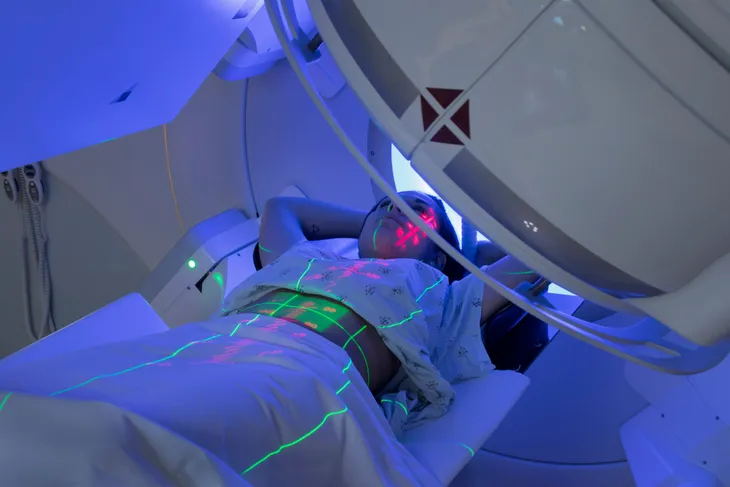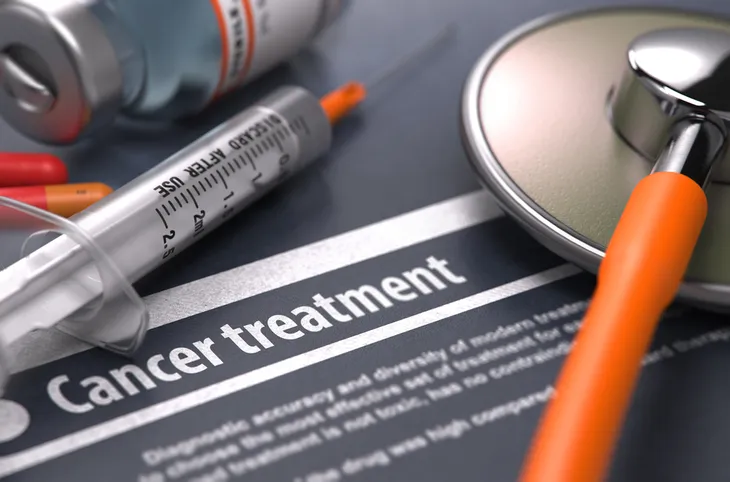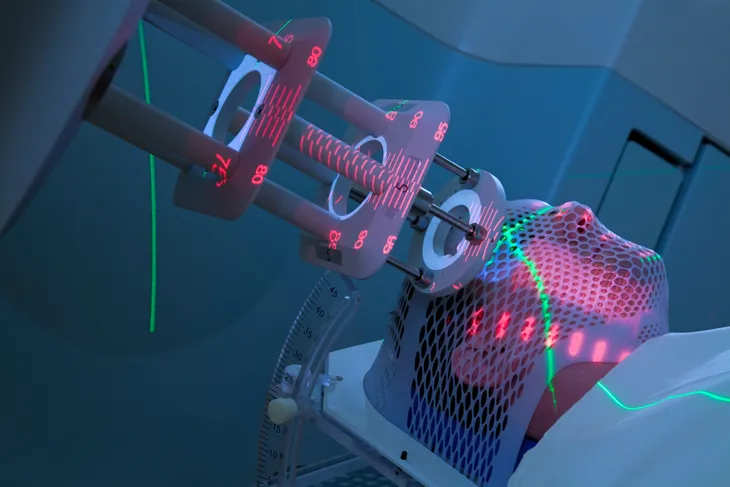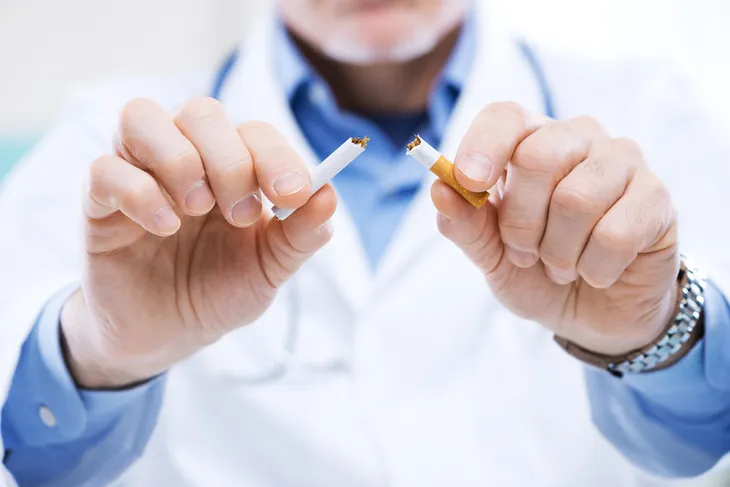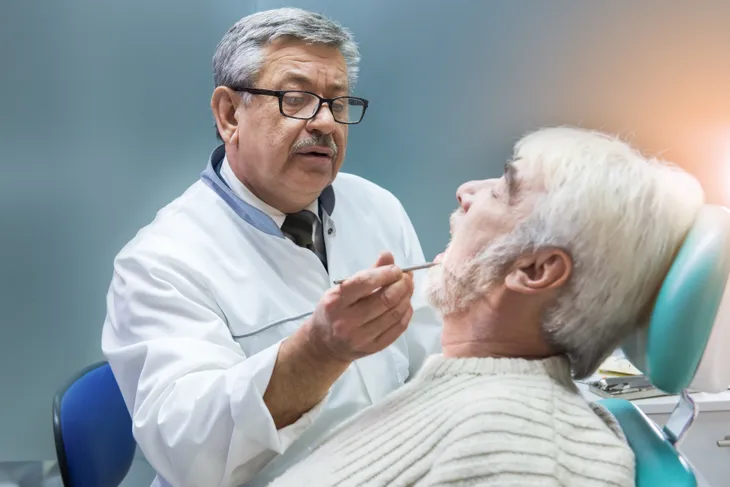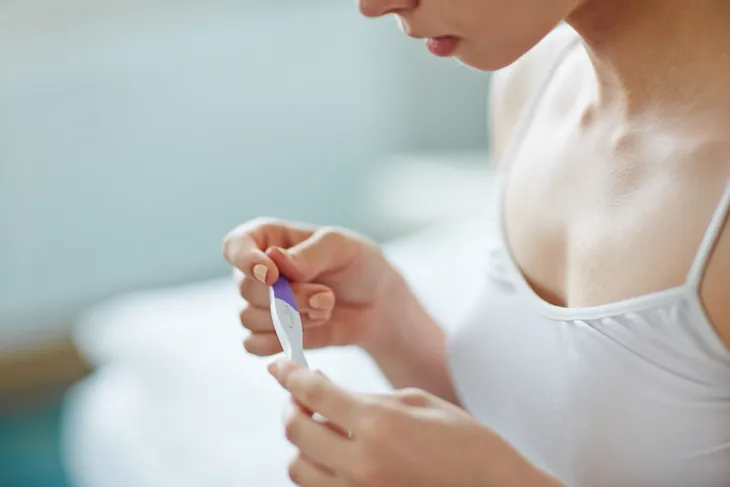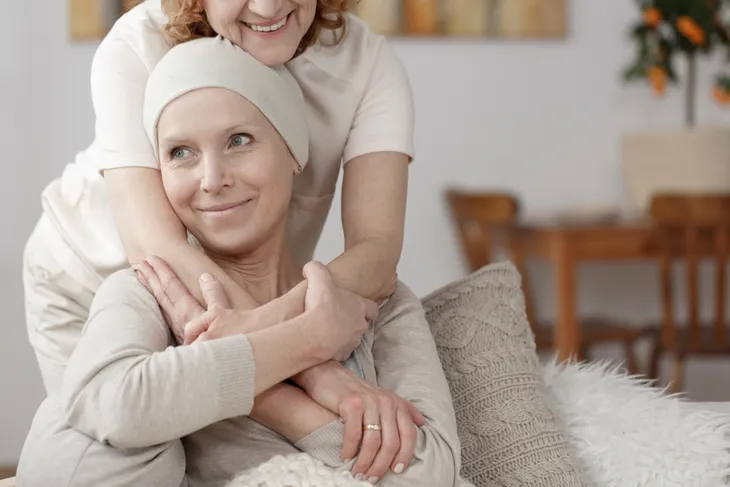When it comes to battling cancer, doctors have several tools in their arsenal to help, and it’s all thanks to modern medicine. Along with chemotherapy, they can also use controlled radiation (X-rays and other beams) to target cancer cells. While radiation therapy can be effective (part of 40-percent of all cancer cures worldwide, according to Targeting Cancer), there are some things to know about it. It’s also a good idea to be prepared for possible side effects so you’re not caught off guard.
What Is Radiation Therapy?
Targeting Cancer explains that radiation therapy, which is also called radiotherapy, uses “high-energy x-rays (photons), gamma rays, electron beams or protons, to damage the DNA in cells located in very specific areas of the body.”
The source notes that cancer cells do not have the ability to repair the damage caused by the radiation, whereas non-cancer cells can recover more effectively. Not only does it kill off the cancer cells, but it also helps stop them from spreading and multiplying.
Purposes of Radiation Therapy
The Mayo Clinic says more than half of cancer patients will receive radiation as part of their overall treatment, and it is used to combat almost every type of the disease. It may also be the only treatment for some cases or combined with chemotherapy and other methods.
The main reasons for radiation therapy are to shrink tumors before surgery, to stunt the growth of any remaining cancer cells following surgery, and as a way to alleviate pain and other symptoms if the cancer becomes more advanced.
Arrange for Help With Chores and Childcare
While you’re undergoing radiation therapy, you’ll want to make sure you have a backup plan, especially if you have younger children who need to be cared for. This type of therapy can make you especially tired. Cancer Council NSW says to choose a trusted person to care for your kids during radiation sessions, or to give older kids rides to planned activities. They can also help you get to and from appointments.
Along with caring for the kids, it’s also helpful to have someone on your side who can do some cooking and cleaning when you can’t. Another tip is to prepare and freeze healthy meals ahead of time to ensure your family will be well fed when you’re not up to the task during treatment.
Expect a Practice Treatment
Before getting the actual therapy, your healthcare team will administer a practice simulation so you can get more comfortable with the process, notes Cancer.net. The team will use scans to identify the tumor/cancer cells that need to be targeted and may mark your skin to assist in this.
You may be immobilized during the treatment, as remaining in the same position is important. If so, you will be fitted for an “immobilization device” using tape, foam sponges, headrests, molds, or plaster casts. The source also notes that a thermoplastic mesh mask may be used for head/neck therapy. This is a good opportunity to let the team know if you have a pacemaker or other implants, which can be affected.
Channel Your ‘Inner Calm’
“Radiation therapy” is a term that can cause anxiety in many patients. The disease itself can feel like it’s trying to take over your life. However, “Relaxation is one of your best defenses,” according to the Cleveland Clinic.
The source suggests just breathing, even just a minute of deep breaths, to take your body off of high alert. It also says you should keep up some activity, like a short walk, but don’t push beyond what you think you can handle. Art therapy can help alleviate stress and has other benefits while pampering yourself with any massages and facials offered by the treatment center can also ease tension, the source adds.
Try To Quit Smoking
Cancer Council NSW explains that it’s a good idea to curb cigarette smoking before undergoing radiation treatment. This is because smoking can actually dampen the positive effects of the treatment and worsen side effects, explains the source.
You could talk to your doctor about smoking cessation methods to help you kick the habit. Smoking may increase the risk of developing cancer in the first place by up to 30 times due to the toxic mix of chemicals, according to the Centers for Disease Control and Prevention.
Consult a Dentist Before Therapy
Radiation therapy targeted to the head and neck can raise the risk of developing cavities and tooth decay, notes the Canadian Cancer Society. The source suggests seeing a dentist before the therapy begins to identify any risks and complete any preventative work.
The source explains radiation therapy can raise the risk of infection or bleeding from dental work. Your dental team can give you tips about managing your oral health during therapy, as well as handling any jawbone problems that can be a side effect of some cancer treatments.
Be Wary of Skin Care
The same source explains that skincare should be a bigger consideration during the radiation process. It notes you should consult your healthcare team before using any skin products on the treatment area, as some lotions and even deodorants can affect the response to radiation treatment.
It also warns to protect your treated skin from the sun, as it will be more susceptible to burning. Wear appropriate clothing when heading outdoors to cover up from the sun’s harmful rays. Use an electric shaver instead of a razor to reduce the risk of cuts, and be sure to consult your health team if the treatment area gets damaged.
Clothing Considerations
WebMD confirms that external radiation therapy can affect your skin the same way as the sun, meaning it can look sunburned, blistered, and itchy. For this reason, it might be wise to find loose-fitting clothing for the affected area — don’t wear tight clothing, says the source.
Aside from getting a proper sun hat to help block out UV rays if you need to head outdoors, ask your doctor if sun lotion is okay to use. The source also says that if you’re being treated for breast cancer, ditch your bra or wear one that is soft and made from cotton, without an underwire.
Avoid Pregnancy During Treatment
Targeting Cancer says it’s advised not to become pregnant during treatment (or before if you know you’ll be receiving radiation), as this type of therapy can have adverse effects on development. It says men are also advised not to conceive during treatment, waiting at least a few months after completion.
On the same subject, the source says if you’re receiving external beam radiation therapy, you will not be a danger to other people — including pregnant women and children. The source adds if you’re receiving brachytherapy (internal radiation), then you should consult your doctor to make sure it’s safe to be around others during the treatment period.
Develop a Healthy Diet
Eating a nutritious diet is especially important when you’re a cancer patient, but the Canadian Cancer Society also acknowledges it can affect your appetite in varying degrees depending on the cancer type. During treatment, you may still have days when you feel hungry. “On others, you may feel you just can’t eat much or can’t resist an unhealthy craving. All of these responses are normal,” adds the source.
However, eating as well as possible during the process is important to keep energy levels up, help your body better deal with side effects, and lower risks of certain health conditions such as osteoporosis. Nutrients can even help you recover when the treatment is finished, the source explains. Some common foods can even help prevent cancer.
Learn Possible Side Effects of Radiation Therapy
Just like any type of medical treatment, there’s a risk of side effects that you should be aware of before you start undergoing treatment. The American Society of Clinical Oncology explains that side effects will vary depending on the type of cancer and the location being targeted, as well as your overall health.
However, signs to look out for include peeling/blistering skin, hair loss if the scalp is targeted, and unusual tiredness/fatigue. You could also experience other negative reactions including dry mouth, mouth sores, nausea, and difficulty swallowing. The source notes side effects often begin during the 2nd or 3rd-week of treatment and go away following completion. Some effects may hang around longer – and “second cancer” from treatment is a risk as well, although low, the source adds.

